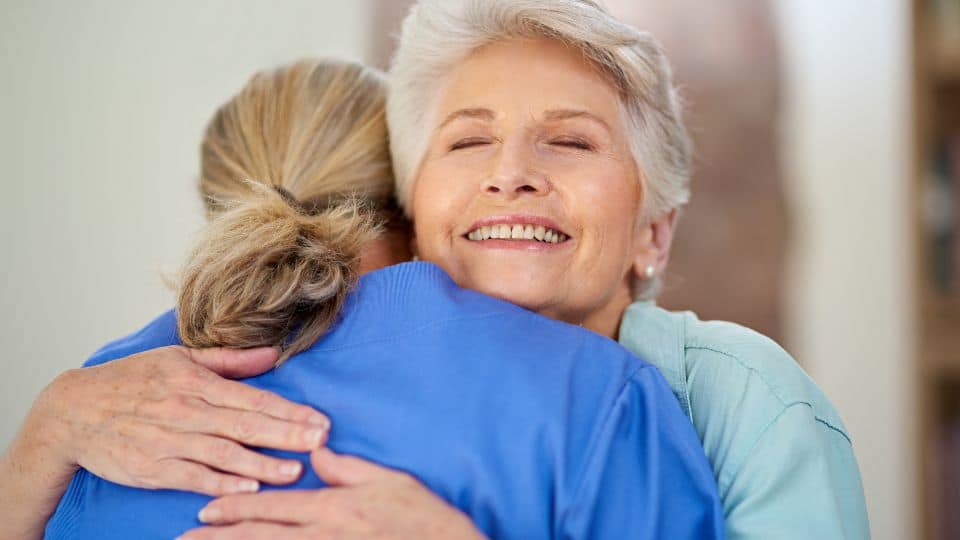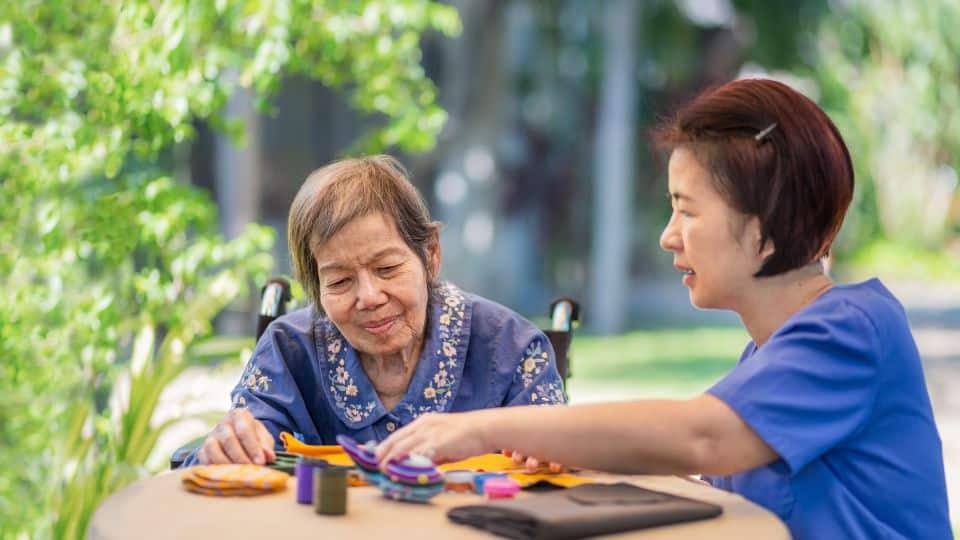Even though we think it might work out, most people don't even consider becoming devoted caregivers. Taking care of aging parents is daunting. You are far from a first-time traveler and many experts have stepped up their wares to assist with your travel. This is a list of professional caregiving techniques for your everyday duties.
Caregiver stress: Tips for taking care of yourself
Caregivers sometimes have to be extremely sensitive. When caring for a loved one, you should ensure that they have a healthy lifestyle. The elderly tend to be more able to take care more easily. Approximately one in three Americans are informal or supervised care providers for a caregiver. Caregivers help the needy.
People in need are often ill spouses and partners, children with disabilities, and elderly parents. Many caregivers reported greater stress levels than non caregivers. They have to learn to understand that they also need help and should connect with caregiver support groups especially if you are looking after someone with cognitive needs like alzheimer's disease.

Caregiving knowledge reduces stress
Insecurity can cause fear and stress in many people's lives. If you find caregiving difficult, the helpline says it's a good idea to get the best possible knowledge. The more you learn more about a loved one, and their conditions and requirements, the better you are prepared to deal with the journey together. Self-learning helps you get answers from a doctor. The best questions help in clear answers and reduce stress levels.
Caregiving is rewarding but stressful
Providing care has a lot of benefits. For most people, caring for someone's family member is enjoyable. It could strengthen your relationship. However caregiving also causes emotional and physically hampered feelings for people. We often experience anger, frustration, exhausted, or sad. We all feel isolated. Caregiver stress may affect a person's health. The caregiver's burden includes factors like:
Caregivers shouldn't neglect their own needs
You want to make your family members' lives easier. So your health is an important part of the plan. caregiver often finds themselves feeling self-conscious while caring for another person. This is a wonderful way to overcome your own selfishness in life.
Remember to keep an eye on yourself no matter the tasks that are necessary. When we take care of ourselves it provides more physical or emotional space to serve your loved ones.

Signs of caregiver stress
As a caregiver you can often neglect to think about your loved ones health or your own wellbeing. Symptoms of caregiver stress include: You might feel overwhelmed by your anxiety. Maybe you need a little sleep in your life. And you may be having trouble balancing your eating habits.
These factors can increase your risk for health issues like cardiovascular disease.
Respite care
It might be harder to leave a loved one in their care. But having a break is an important decision to take, so look for other caregivers and another family caregiver to assist. Respite care plays a crucial role in maintaining the physical and mental well-being of individuals who require ongoing medical attention.
As health care professional, we understand that caring for loved ones with chronic illnesses or disabilities can be demanding, both physically and emotionally. This is where respite care steps in to provide temporary relief by offering professional supervision and support for patients.
Whether it involves personal hygiene assistance or medication management, health care professionals ensure that individuals receive the highest quality of personalized care during their respite period. Moreover, through collaboration with various support groups, respite care serves as an invaluable resource for families navigating the complexities of long-term caregiving responsibilities.
By bringing together these dedicated caregivers within a community setting, support groups offer a unique platform to exchange experiences, seek guidance from experts, and find solace among peers facing similar challenges. With this comprehensive and holistic approach towards patient-centered care facilitated by health care professionals working closely with support groups, respite services undoubtedly contribute to enhancing overall well-being within our healthcare system.

Working outside the home
Caregivers that work in other places might find themselves in a lot of pain. If you feel this is true then think about leaving work to get some free time. Employers covered by the family leave and medical benefits Act can receive up to 12 months off unpaid vacation each. Ask your HR department to determine the availability of paid leave.
Protect your loved one's finances
It can be argued that an older parent is often targeted by a wide array of financial schemes if not for their well-being. When strangers on the Internet ask for money, relatives who have been living alone might not realize they are being exploited.
It's recommended to program to identify callers by name, not by numbers. Think “docs”, pharmacists, neighbors and anything else that matters to us. If you've got a friend that doesn't understand their voice, you should tell them not to call someone.
Develop your skills and knowledge in support work for older people. Community Care Toolkit provides an online learning experience that helps you develop your skills and learn new ones.
Frequently asked Questions
What is Connected Caregiver?
Connected Caregiver is a monitoring solution that focuses primarily on families who need assistance. Our staff understand the difficult tasks that can occur when the elderly parent or caregiver is at risk and have committed themselves to provide aides in ensuring a safer and better caregiver environment.
Our family caregivers do not need to ever feel lonely. Amazing people who dedicate time and effort in protecting their families deserve best protection for them, their family and their lives. Most importantly, they need to be secure in caring for those they care about most.
What is the difference between caring for and taking care of someone?
A patient's medical and psychological aspects are important. CARING FOR PATIENTS is however a human-oriented approach of addressing the needs and concerns of people just because they are human.
How can I be a better caregiver?
Tell me your favorite way to help someone who is ill? Accept help. Make caring for your child a simple thing to do in the shortest possible time. Give no advice. The "Football" is a type of a ballistics game played on television, with a single player playing a role in the game's success. Make a good ally in the care of a cherished person. Put all your legal ducks together and concentrate on your relationship.
What advice might you give to someone who is a caregiver?
Caregiving can take a toll on family caregivers but it is important that you focus on mental well being and physical wellbeing. Give yourself the permission for some time of relaxation. The same is true for everyone else.
What caregivers need most?
How do caring parents need most help? Most of the time, the answers are simple. Most people need a sense of belonging, respect for their feelings about themselves and being involved in their own health, including being part of setting their own medical appointments.
What is elderly caregiver?
The Eldercare Assistant is a person who assists a person who needs help and helps them to live independently in the home. Although the caregivers are not medical, there are others who have extra licenses or call them home care assistants. They are a family caregiver who looks after a loved one's physical health and they are often adult children.
What do you call the person that takes care of the elderly?
Someone taking care of an older person is called the caregiver. If you take good care of a dying friend you are the ones whose care will be the best. As caregivers are usually paid jobs, home health aids and nurse at hospitals work together as caregivers.
What is the difference between a caretaker and a caregiver?
The Referred person is a caring person who cares for elderly and disabled people. A caretaker's job can also be more extensive such as helping the property when the owner is away and providing physical or emotional assistance.
What are 3 signs of caregiver stress?
The symptoms are feeling rushed or anxious throughout the whole day. I'm tired. Sleep is excessive. Weight loss. I've always felt irritated and frightened. I hate that. Lost interest in activities you enjoy. Feels sad. Have headaches and health issues frequently.
What should a first time caregiver do?
When embarking on the journey of becoming a first-time caregiver, it is crucial to start by seeking support and guidance from resources available in your local area. Contacting the local area agency specializing in caregiving services can prove immensely beneficial.
These agencies possess a wealth of knowledge regarding caregiving techniques, legal responsibilities, and potential financial assistance programs that could ease the burden associated with caring for a loved one. Additionally, engaging other family members is vital as they can offer both emotional support and practical help in sharing the caregiving responsibilities.
Collaborating with them allows for a more sustainable care plan that ensures all aspects of your loved one's needs are met while preventing caregiver burnout. Together with the local agency's expertise and involvement from other members of your family, you can establish a solid foundation upon which to build an effective caregiving strategy.
How do I prepare myself as a caregiver?
Get the medical info from the family of a friend or family member you are sending in for incoming medical treatment. List the dosages. Activation or pharmacological routine. Allergy.
Develop your skills and knowledge in support work for older people. Community Care Toolkit provides an online learning experience that helps you develop your skills and learn new ones.
Conclusion
Being a caregiver is an important and rewarding job, but it can also be mentally and physically draining. It is essential to remember that looking after yourself as a caregiver should be your top priority to ensure your own health and well-being. With the tips outlined in this article, you will have the tools you need to create strategies for self-care that fit within your lifestyle so that you can continue providing excellent care without burning out.
